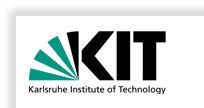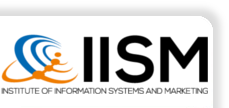| Description | The goal of the course is to create a text that is comprehensive, practical, applied, and managerial and that presents a balanced coverage of both, quantitative and qualitative approaches. It takes the perspective of users of marketing research and set out to reflect the current trends in the use of computers (e.g. statistical packages and online research). The course covers as main topics an introduction to interactive mulimedia systems, techniques of internet marketing research, methods of primary data collection including questionnaires and scaling of psychological attributes, methods of observation, program analyzer, psychobiological methods, content analysis and cognitive response approach, experimental designs and panels, secondary data collection, management support systems, a case study in marketing decision support and an overview of philosophy of science. |
| Bibliography | (Literature is in English and German, see German description) |
| Content of teaching | The goal of the course is to create a text that is comprehensive, practical, applied, and managerial and that presents a balanced coverage of both, quantitative and qualitative approaches. It takes the perspective of users of marketing research and set out to reflect the current trends in the use of computers (e.g. statistical packages and online research). The course covers as main topics an introduction to interactive mulimedia systems, techniques of internet marketing research, methods of primary data collection including questionnaires and scaling of psychological attributes, methods of observation, program analyzer, psychobiological methods, content analysis and cognitive response approach, experimental designs and panels, secondary data collection, management support systems, a case study in marketing decision support and an overview of philosophy of science. |
| Entryrequirements | None. |
| Annotation | Please note that this lecture is offered for the last time in summer term 2016. |
| Workload | The total workload for this course is approximately 140.0 hours. For further information see German version. |
| Aim | Students have learned the following outcomes and competences:
|
| Exam description | The assessment consists of a written exam (60 minutes) (following §4(2), 1 of the examination regulation). The exam is offered in winter term 2016/17 for the last time. Exclusively for students who took the exam for the first time in winter term 2016/17 and need to retake the exam, a re-examination will be offered in summer term 2017 if required. Winter term 2016/17 is the last re-examination possibility for all students who took the exam for the first time in a previous semester. |
Information Technology and Business Information
| type: | Vorlesung (V) | links: | weitere Informationen |
|---|---|---|---|
| semester: | SS 2017 | ||
| time: | 2017-04-24 09:45 - 11:15 wöchentlich 20.13 Raum 006 20.13 Kollegium am Schloss - Bau III 2017-05-08 09:45 - 11:15 wöchentlich 20.13 Raum 006 20.13 Kollegium am Schloss - Bau III 2017-05-15 09:45 - 11:15 wöchentlich 20.13 Raum 006 20.13 Kollegium am Schloss - Bau III 2017-05-22 09:45 - 11:15 wöchentlich 20.13 Raum 006 20.13 Kollegium am Schloss - Bau III 2017-05-29 09:45 - 11:15 wöchentlich 20.13 Raum 006 20.13 Kollegium am Schloss - Bau III 2017-06-12 09:45 - 11:15 wöchentlich 20.13 Raum 006 20.13 Kollegium am Schloss - Bau III 2017-06-19 09:45 - 11:15 wöchentlich 20.13 Raum 006 20.13 Kollegium am Schloss - Bau III 2017-06-26 09:45 - 11:15 wöchentlich 20.13 Raum 006 20.13 Kollegium am Schloss - Bau III 2017-07-03 09:45 - 11:15 wöchentlich 20.13 Raum 006 20.13 Kollegium am Schloss - Bau III 2017-07-10 09:45 - 11:15 wöchentlich 20.13 Raum 006 20.13 Kollegium am Schloss - Bau III 2017-07-17 09:45 - 11:15 wöchentlich 20.13 Raum 006 20.13 Kollegium am Schloss - Bau III 2017-07-24 09:45 - 11:15 wöchentlich 20.13 Raum 006 20.13 Kollegium am Schloss - Bau III |
||
| lecturer: | Prof.Dr. Bruno Neibecker | ||
| sws: | 2 | ||
| lv-no.: | <a target="lvn" href="https://campus.studium.kit.edu/events/Go7dmS1rReqlDdSs0rm4HA">2571162</a> | ||


